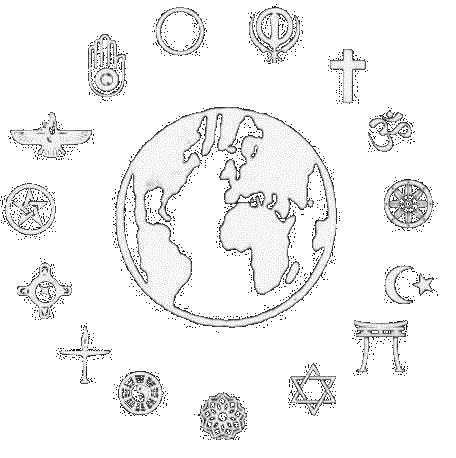The following are a list of some of our ongoing interfaith activities
From the Roots of Abraham
Our current exhibition celebrates the commonalities between the Abrahamic Religions.
Interfaith Events
We host events wherein people practising different faiths are invited to attend, speak and share food.
Tours
We provide tours to interested parties such as school groups and faith-based groups of varying backgrounds.
MARC TV
On our TV channel, a number of episodes featured interfaith issues.
Open Doors
Our doors are open to anyone who wants to learn about Islam.
Interfaith Library Section
In our library, Muslims can access materials about other faith traditions.
MORE INFORMATION
Is MARC associated with any particular religious perspective?
MARC aims to make available the teachings of Shia Ithna-Ashari Islam, the branch of Islam that connects itself to the Prophet Muhammad, peace be upon him, through his saintly daughter Fatima, her husband, Imam Ali, and eleven of their descendants. The Arabic word Ithna-Ashar means “twelve”, in recognition of the twelve Imams or “leaders” who are believed by Shia Ithna-Ashari Muslims to be have been the divinely chosen and most qualified individuals to lead the Muslim community after the death of the Prophet. The last of these Imams is held to be alive, with a miraculously prolonged life, to return before the end of the world as the saviour who will restore peace and justice to humankind.
What do the Shia Ithna-Ashari teachings say about interfaith relations?
Shia Ithna-Ashari Muslims value the Holy Qur’an and the twelve immaculate Imams as two greatly sanctified sources of wisdom who directly connect seekers to the One God. Both of these sources encourage Muslims to live with people of other faiths in an honourable and mutually-respectful manner. A few well-known examples of such teachings are as follows:
“…To each of you We prescribed a law and a method. Had Allah willed, He would have made you one nation [united in religion], but [He intended] to test you in what He has given you; so race to [all that is] good. To Allah is your return all together, and He will [then] inform you concerning that over which you used to differ.” (Qur’an, 5:48)
“O mankind, indeed We have created you from male and female and made you peoples and tribes that you may know one another. Indeed, the most noble of you in the sight of Allah is the most righteous of you. Indeed, Allah is Knowing and Acquainted.” (Qur’an 49:13)
“Surely those who believe, and those who are Jews, and Christians, and Sabians, whoever believes in Allah and the Last day and does good, they shall have their reward from their Lord, and there is no fear for them, nor shall they grieve.” (Qur’an, 2:62)
“Remember, Malik, that amongst your subjects there are two kinds of people: those who have the same religion as you have; they are brothers to you, and those who have religions other than that of yours, they are human beings like you. Men of either category suffer from the same weaknesses and disabilities that human beings are inclined to, they commit sins, indulge in vices either intentionally or foolishly and unintentionally without realizing the enormity of their deeds. Let your mercy and compassion come to their rescue and help in the same way and to the same extent that you expect Allah to show mercy and forgiveness to you”. –Imam Ali’s advice to his governor (Nahjul Balagha, letter 53)

